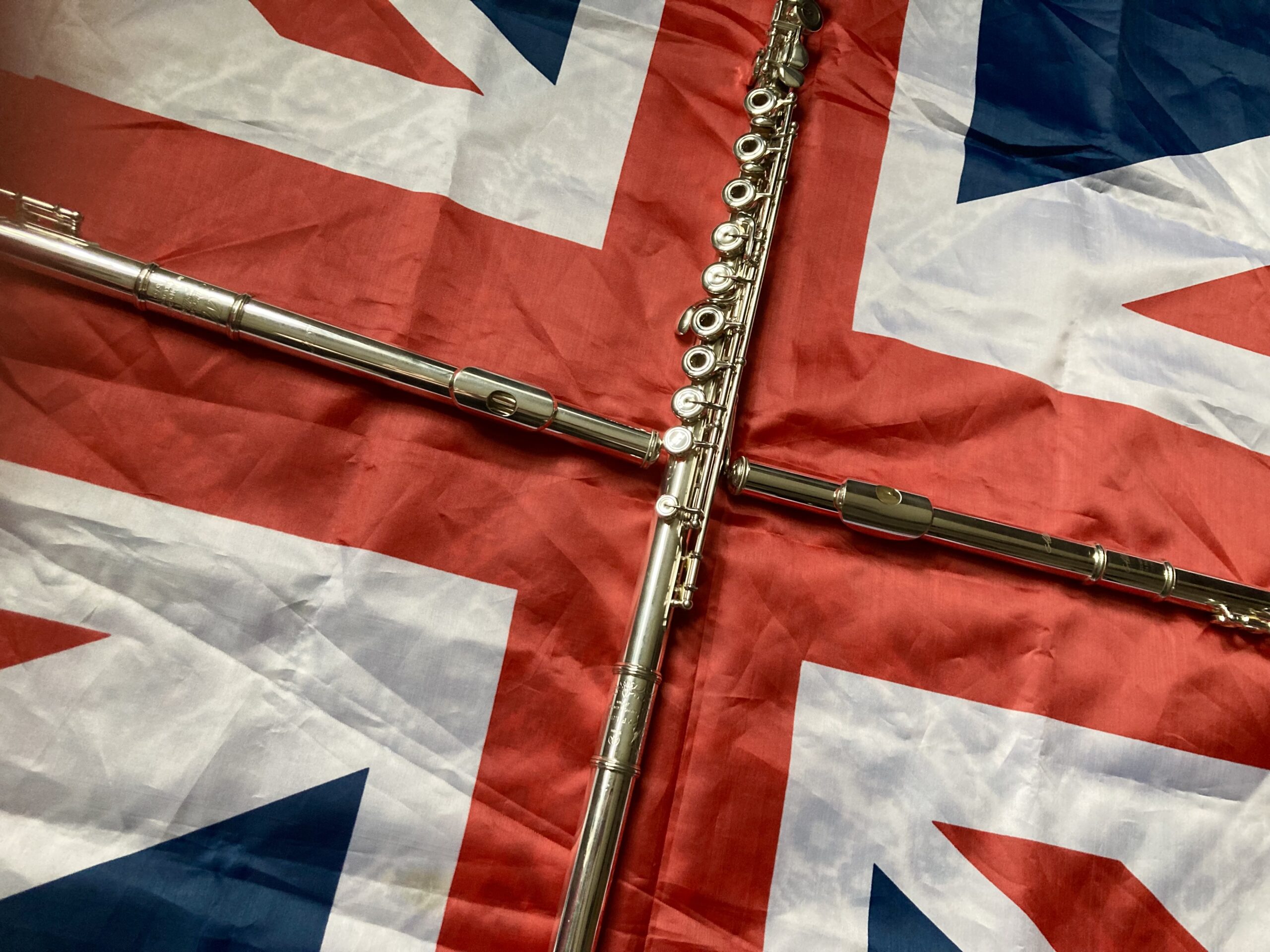It’s always great to celebrate home-grown winners from competitions at the National Flute Association’s annual convention. Here are the ‘Best of British’ from their Newly Published Music category.
Alan Ridout: Sonata for Flute and Piano, published by Aurea Capra
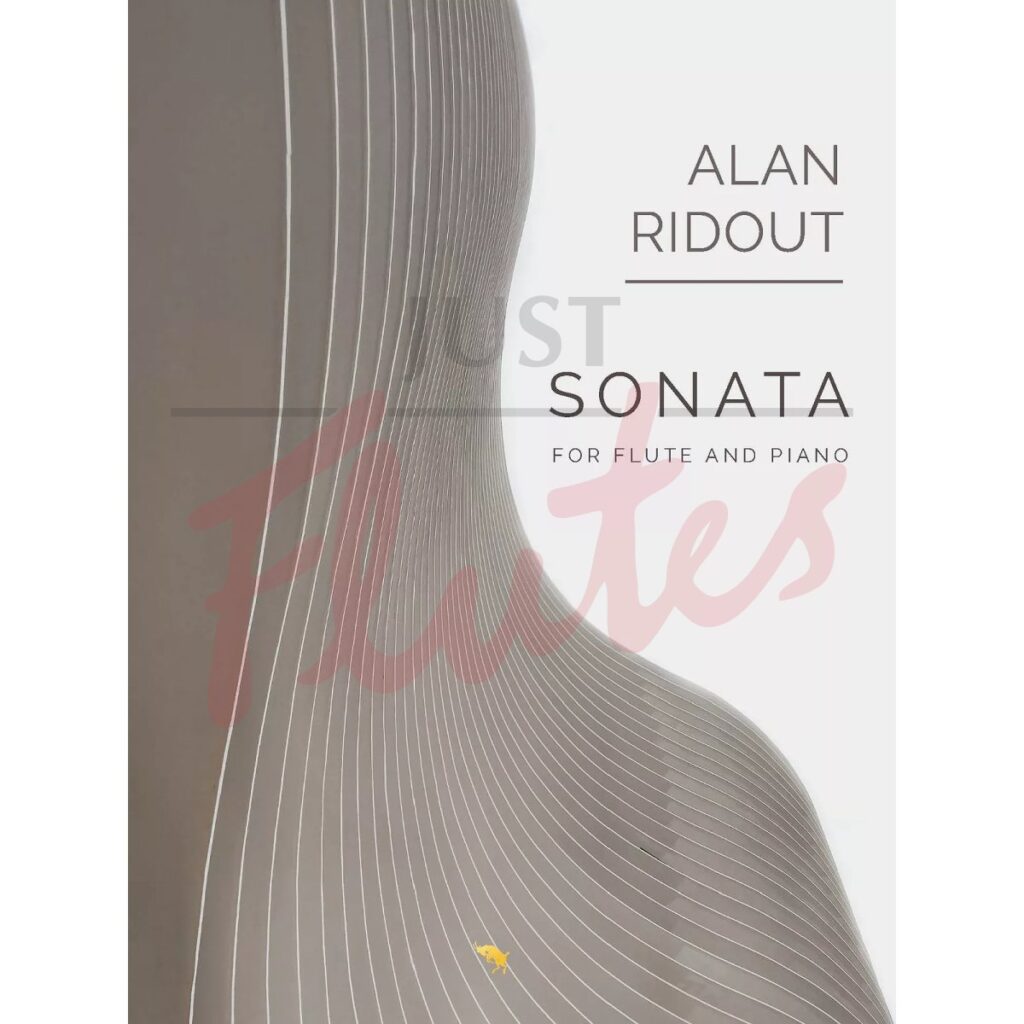
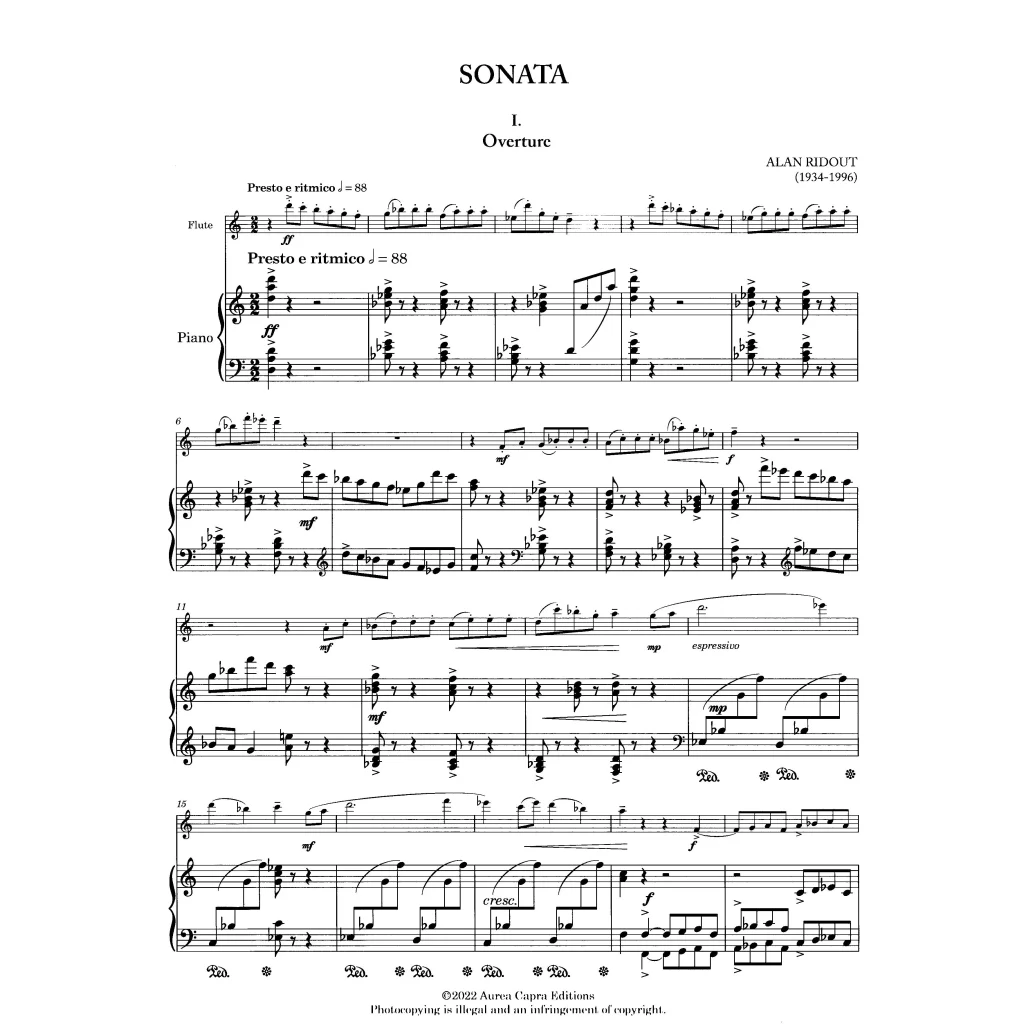
This lovely Sonata by the rather forgotten British composer Alan Ridout will feel a little nostalgic if you are a fan of tonal music. The Overture is fast and ebullient with a mix of cascading runs and rhythmic drive, the beautiful Serenade has a soulful melody over a flowing accompaniment, and the closing movement unusually starts with theme in the piano before the flute joins in for the six contrasting variations. A great choice for recitals. Difficulty guide: 7-8
Eugene Magalif: Xenia for Two Flutes and Piano, published by Forton Music
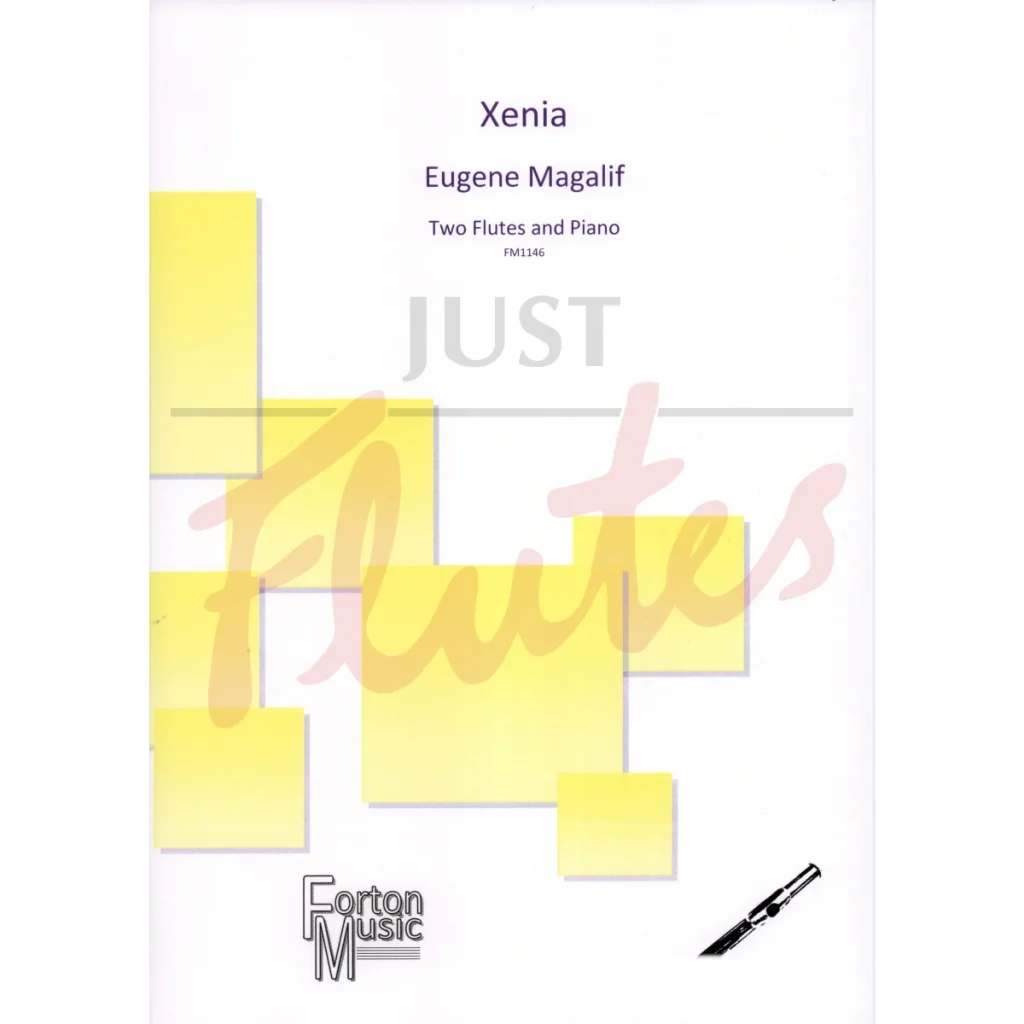
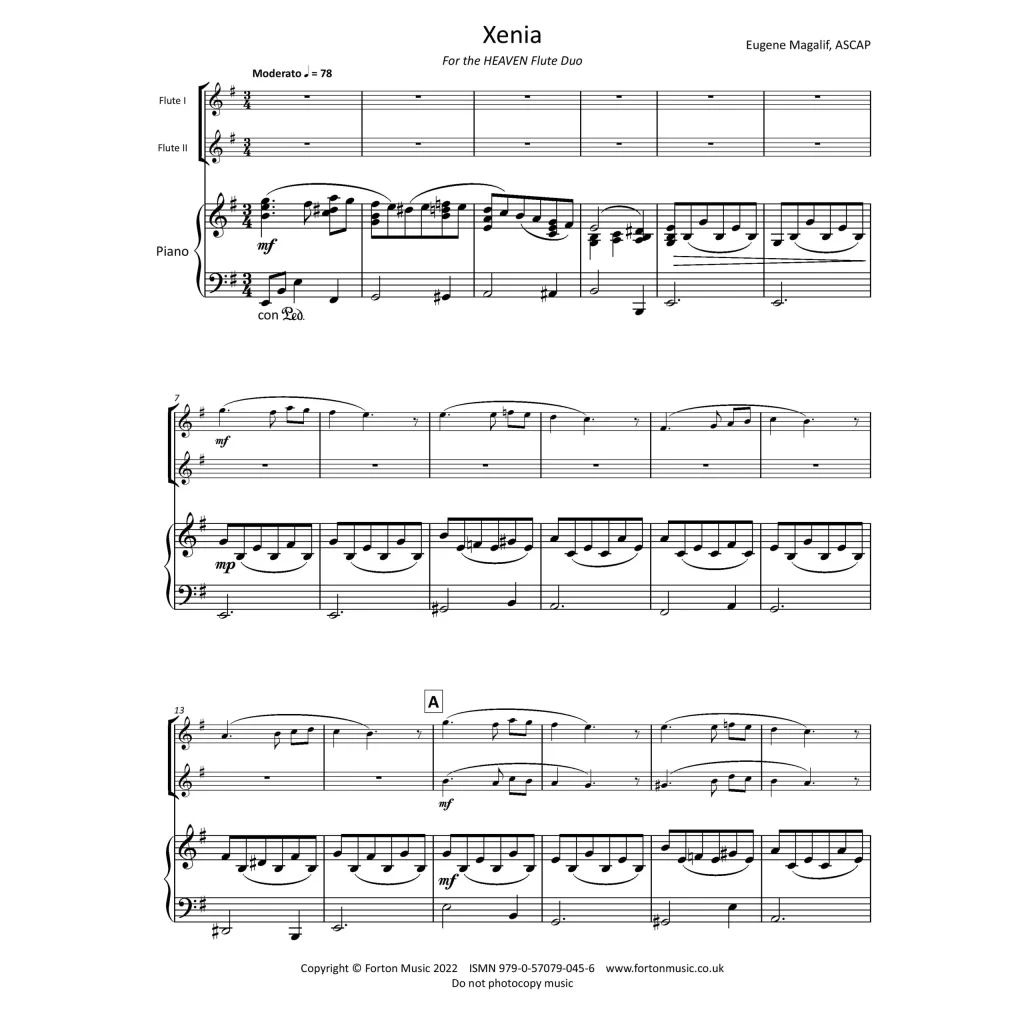
This lovely duet with links to Ukraine starts with a poignant melody, becomes ever more passionate before closing as it began. From a practical angle the flutes are in rhythmic unison and close harmony throughout making it straightforward to perform. Musically it will break your heart. Difficulty Guide: 7
Alfie Pugh: The Twelve Keys of Christmas for Flute Quartet, published by Wonderful Winds
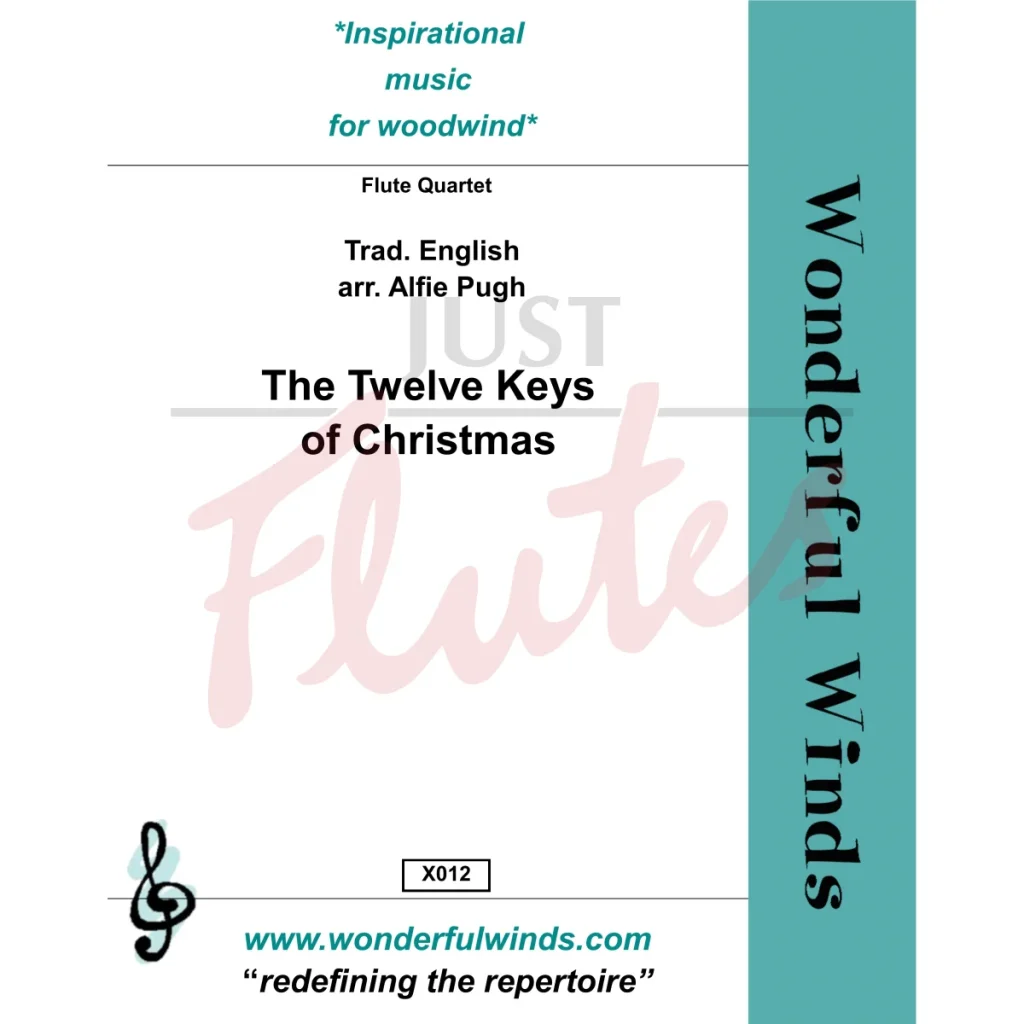
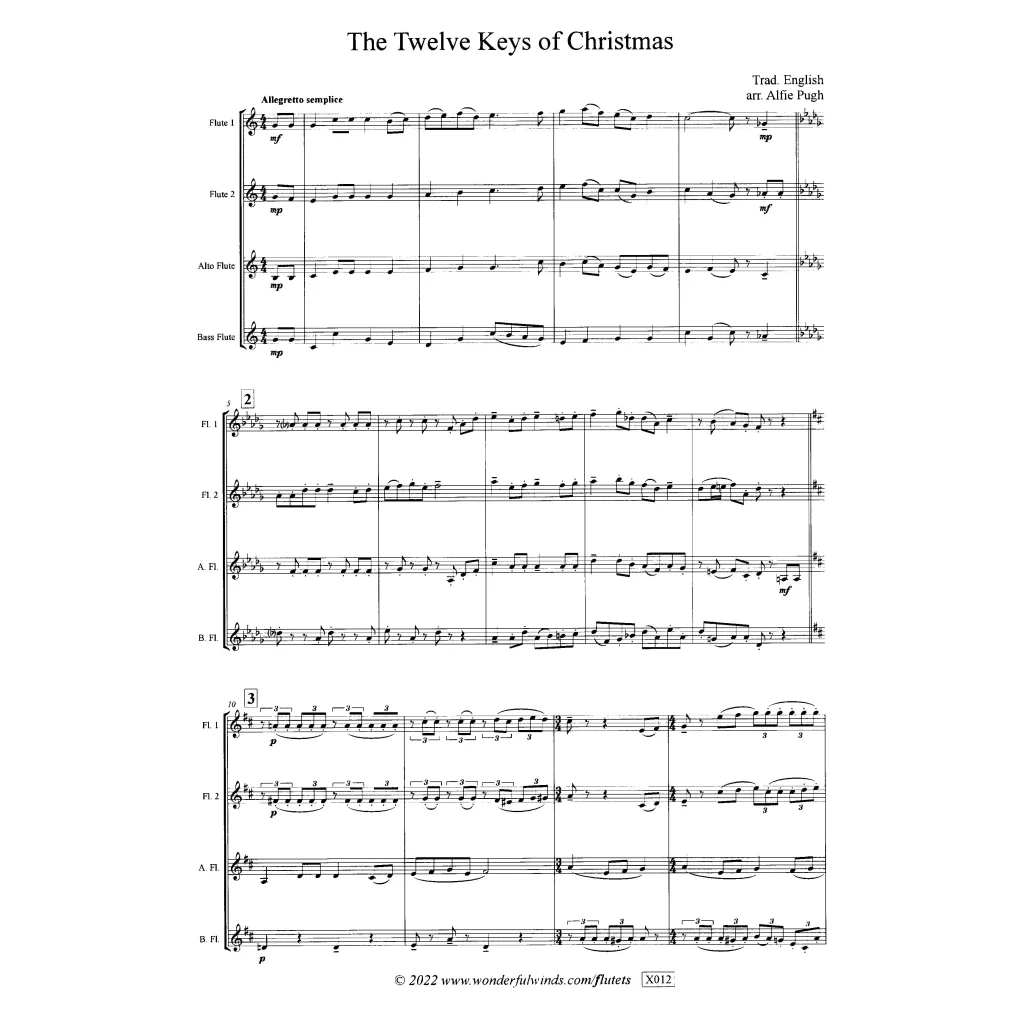
The Twelve Keys Of Christmas was written as a fun and challenging version of the ever-popular, interminable carol, but with a key change every verse. Almost every major key is used, except for one in the parallel minor, and although it starts simply, the piece quickly becomes sillier and sillier. As well as many timeless Christmas songs, the arranger has also managed to use bits of the Nutcracker, Peter And The Wolf, and quotes from all your favourite Wild West film themes. Ending in a way only Prokofiev could, this piece is sure to delight your audiences and get them playing ‘spot the tunes’. Difficult Guide: 8-9
James Oswald arranged Boland: Oswald’s Airs from the Four Seasons for Two Flutes and Cello, published by Alry.
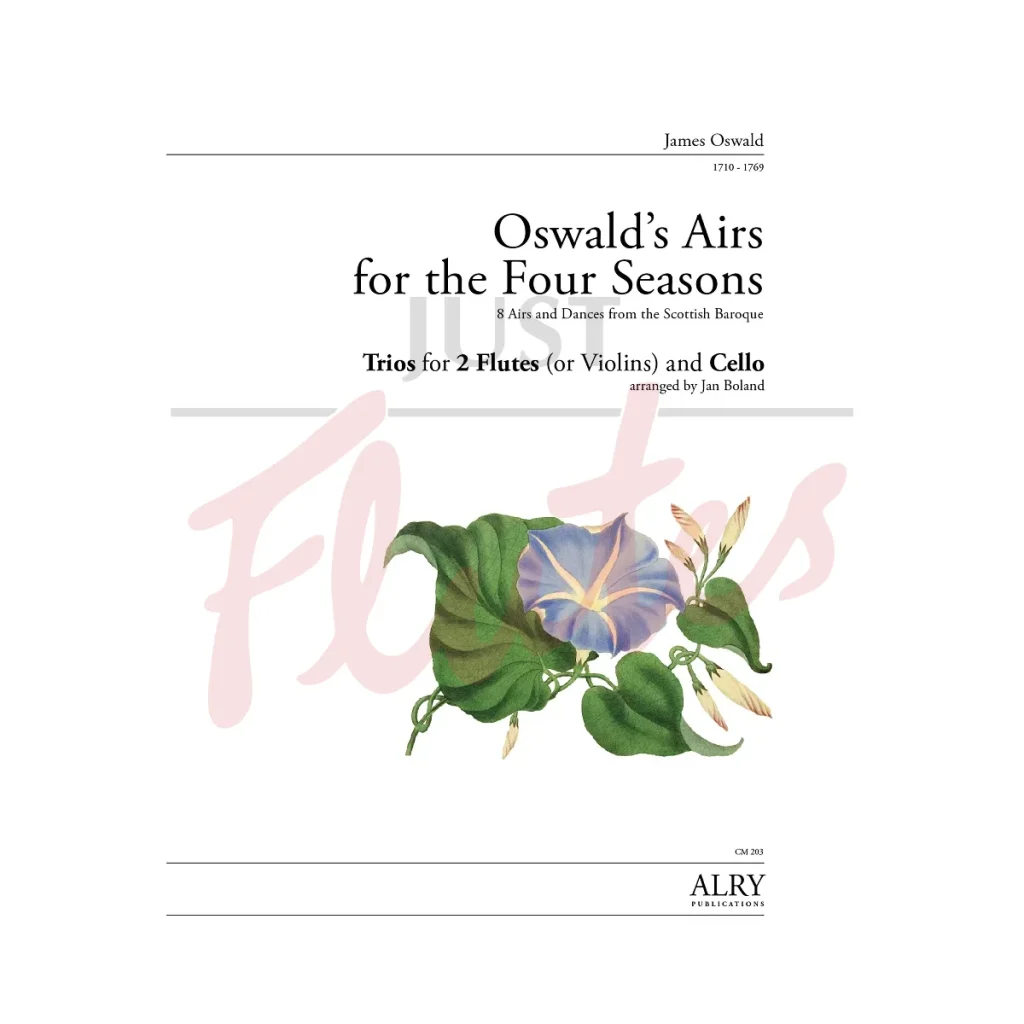
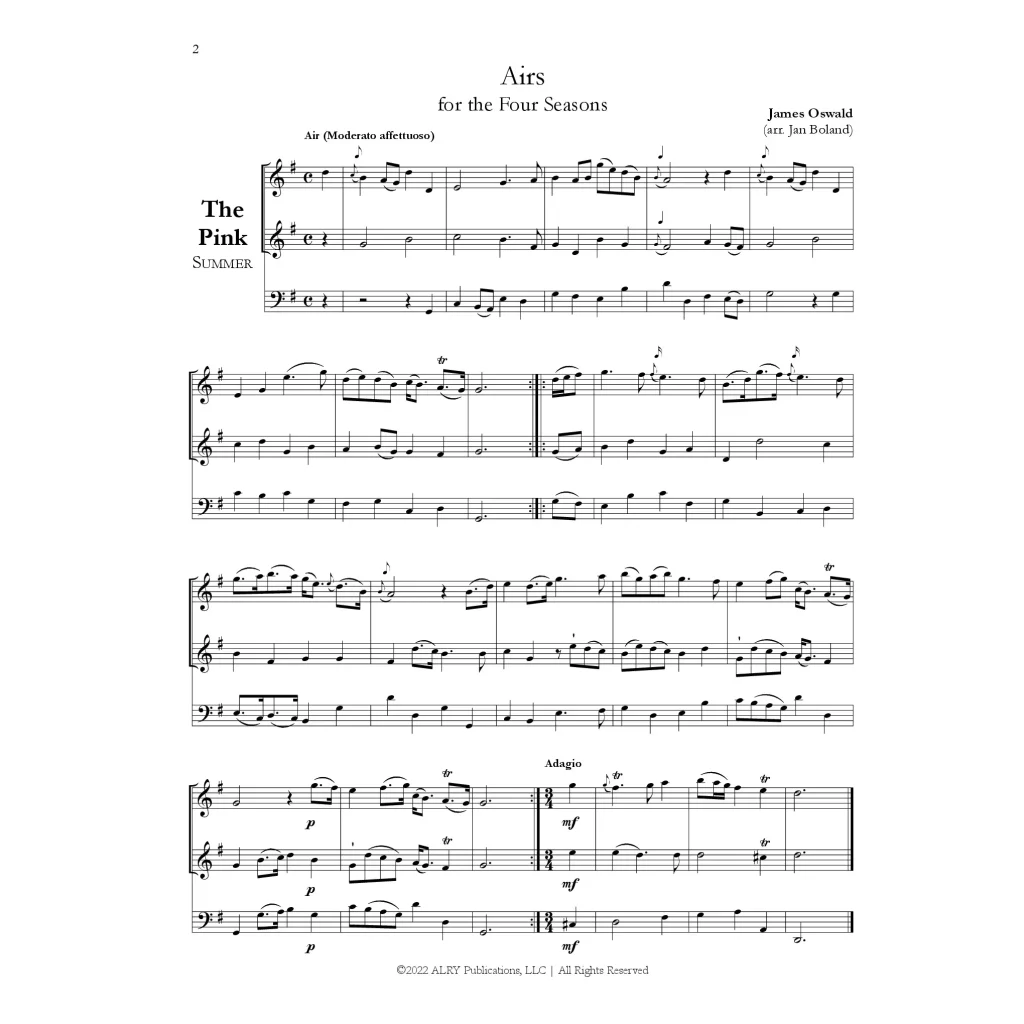
These eight charming melodies from James Oswald’s collection of ‘Airs from the Four Seasons’ are perfect examples of Scottish folk music arranged in a Baroque style. They are mostly melancholy in nature and then up the tempo with one or two contrasting dance movements. Each part can be embellished to suit all abilities and, with the flexibility of instrumentation that can be used, this a great way to learn how to deal with Baroque style. They are also quite short which is really useful when programming. Gorgeous music that has many uses – ideal! Difficulty Guide: 6-8
Roderick Seed: 7 Daily Vocalises for Flute, published by Tetractys
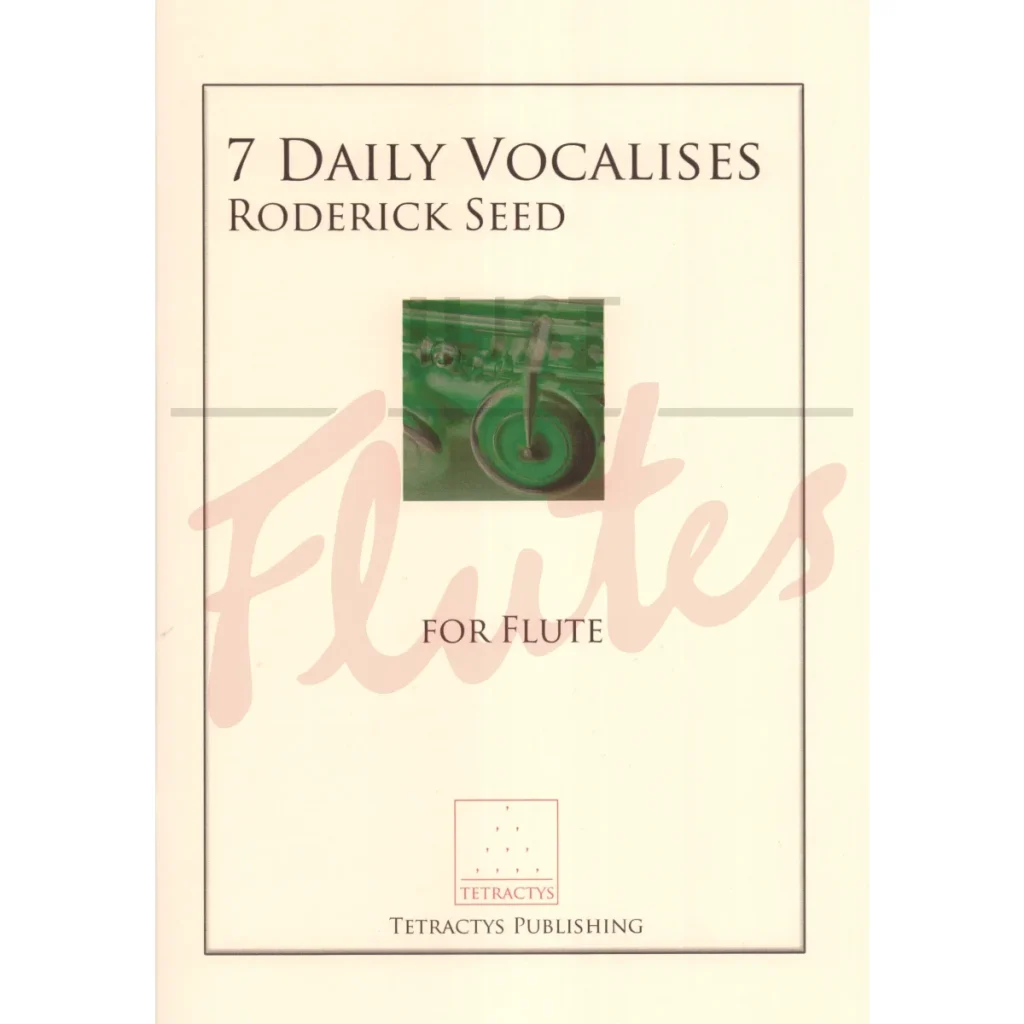
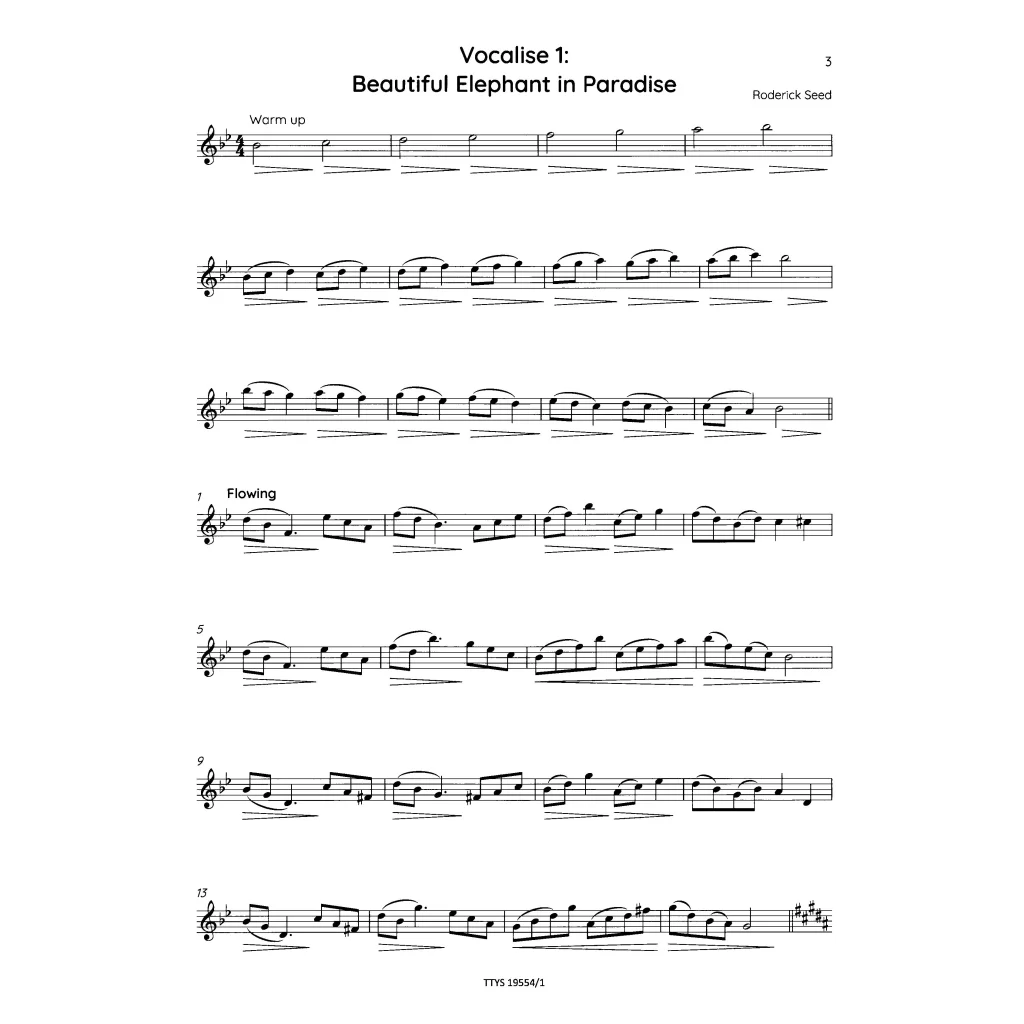
This lovely book from Rod Seed is unique. All seven exercises challenge and develop flexibility, and all have music at their heart. The purpose of each one is clearly explained, has a warm up to get you started and is printed in all the keys possible. For example, Hommage to Poulenc is designed to improve control of the Cantilena. There are plenty of warm-up and tone development books on the market but none is quite like this! Difficulty Guide: 6-9

